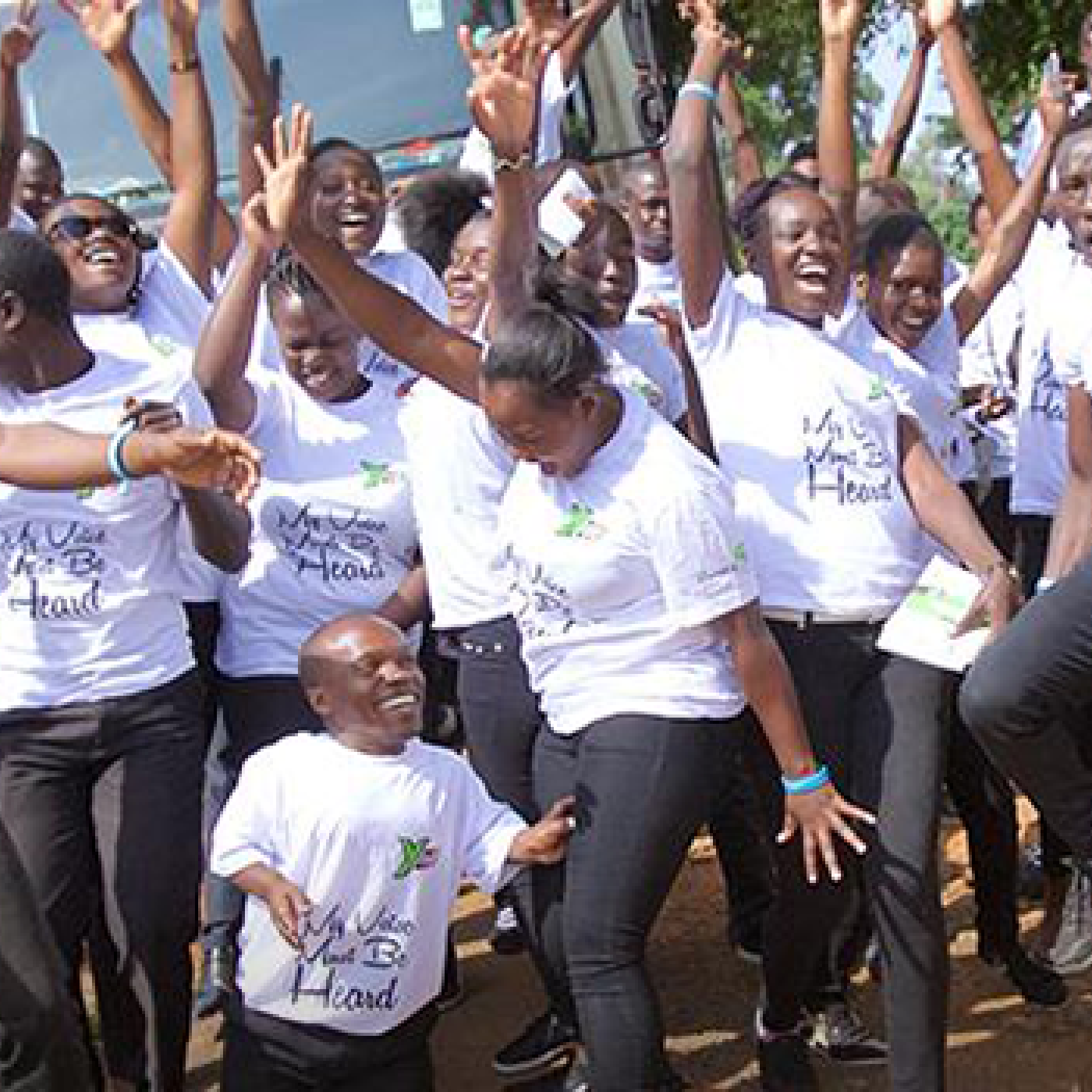Tools & Resources
Filter by
Type
Publication date
Language
Type
Publication date
Language
News & Updates
Feature
A Look Beyond the 2017 Kenyan Elections: Empowering Young People Through Mentorship
On May 6, 40 Kenyan youth leaders graduated from IFES' Youth Mentorship initiative as part of a youth civic and voter education project called Changamka, a Swahili word which loosely translates to “take action.” Having gone through three months of leadership workshops and connecting with peers and mentors, the graduates are confident to serve as change agents within their communities across the country.
News & Updates
Feature
How Kenya Used Social Media to Inform Voters and Counter Fake News
In Kenya, the Independent Electoral and Boundaries Commission (IEBC) is mandated to conduct continuous voter education and in 2017, ahead of the Kenyan general elections, the IEBC set out to work collaboratively with IFES through the Kenya Electoral Assistance Program to improve outreach and voter education efforts for meaningful electoral participation.
News & Updates
Feature
Conflict Mediation and Mitigation Activities Promote Peaceful Participation During 2017 Elections in Kenya
IFES has worked with local partner Act Change Transform (Act!) under the U.S. Agency for International Development-funded Kenya Electoral Assistance Program (KEAP) to implement a series of large-scale locally-contextualized conflict mitigation activities. Through the use of conflict management panels, Act! has leveraged grassroots networks to ensure multi-stakeholder engagement in electoral peace efforts.
News & Updates
Feature
Bilel Mansouri: From H4D Participant to Change Maker
To address a growing lack of civic engagement among Tunisian youth, IFES launched an original initiative called Hack4Democracy (H4D) in Tunisia, a combination of democracy camps and hackathons. Bilel Mansouri used his experience in a H4D camp and applied what he had learned to create Detecti, a mobile and web application, and start Jeunes Actifs, a civil society organization.
Election FAQ
Elections in Tunisia: 2018 Municipal Elections
On May 6, Tunisia held municipal elections to fill 7,212 council seats in 350 electoral constituencies, which were the first held since the 2011 popular uprising that ousted President Zine El Abidine Ben Ali. To help you understand this important electoral process, IFES provides Frequently Asked Questions (FAQs) on Elections in Tunisia: 2018 Municipal Elections.
News & Updates
Feature
Technological Innovation at the Service of Youth Engagement
To address a growing lack of civic engagement among Tunisian youth, IFES launched an original initiative called Hack4Democracy (H4D) in Tunisia, a combination of democracy camps and hackathons, putting the latest technological advances at the service of youth engagement. H4D promotes civic engagement through the competitive creation of innovative tools using new technologies, and builds professional competencies for youth by providing networking opportunities, mentoring and incubation of the most promising projects.
News & Updates
Feature
Mobilizing Illiterate Tunisian Women Living in Rural Areas for the May 6 Municipal Elections
IFES' partner, the Tunisian Mediterranean Center (TU-MED), found that 83 percent of rural Tunisian women said they did not vote during the 2014 national elections. Due to these findings, IFES and TU-MED launched several outreach campaigns in 2017 targeting illiterate women living in rural areas. IFES trained 286 female outreach ambassadors to engage in face-to-face dialogue regarding the electoral process and the importance of decentralization. The ambassadors reached 7,680 women, encouraging them to register to vote in municipal elections scheduled for May 6, 2018.
News & Updates
Feature
Celebrating World Radio Day in Tunisia
On May 6, 2018, Tunisia will democratically elect 350 municipal councils for the first time. This landmark election will set the country’s decentralization into motion. In this context, IFES worked toward building the capacity of local journalists in covering the forthcoming elections in an impartial, balanced and equitable manner. Access to accurate and objective information on elections is essential for the voters to make an informed choice at the ballot box.
News & Updates
Feature
Giving a Voice to Tunisia’s Voiceless Citizens
The upcoming May 6 municipal elections in Tunisia will mark the first time citizens will democratically elect their local leaders and launch the decentralization process in the country. IFES employed a multi-pronged, nationwide, interactive voter education campaign – primarily targeting rural and traditionally marginalized voters – that reached six million voters during the voter registration period in 2017.
News & Updates
Feature
Storytelling Mobilizes Kenyan Voters to Head to the Polls
In addition to traditional voter education, the International Foundation for Electoral Systems' “Kenya Electoral Assistance Program” (KEAP) used creative ways to educate the public ahead of the August 2017 general elections. Creative content was developed for TV and digital ads, radio spots, posters, street theater, puppetry, spoken word, photography, dance and personalized conversations. The creative content was based on data-driven insights that informed how the communication was structured, who the messenger was and what types of messages motivated people to vote.












